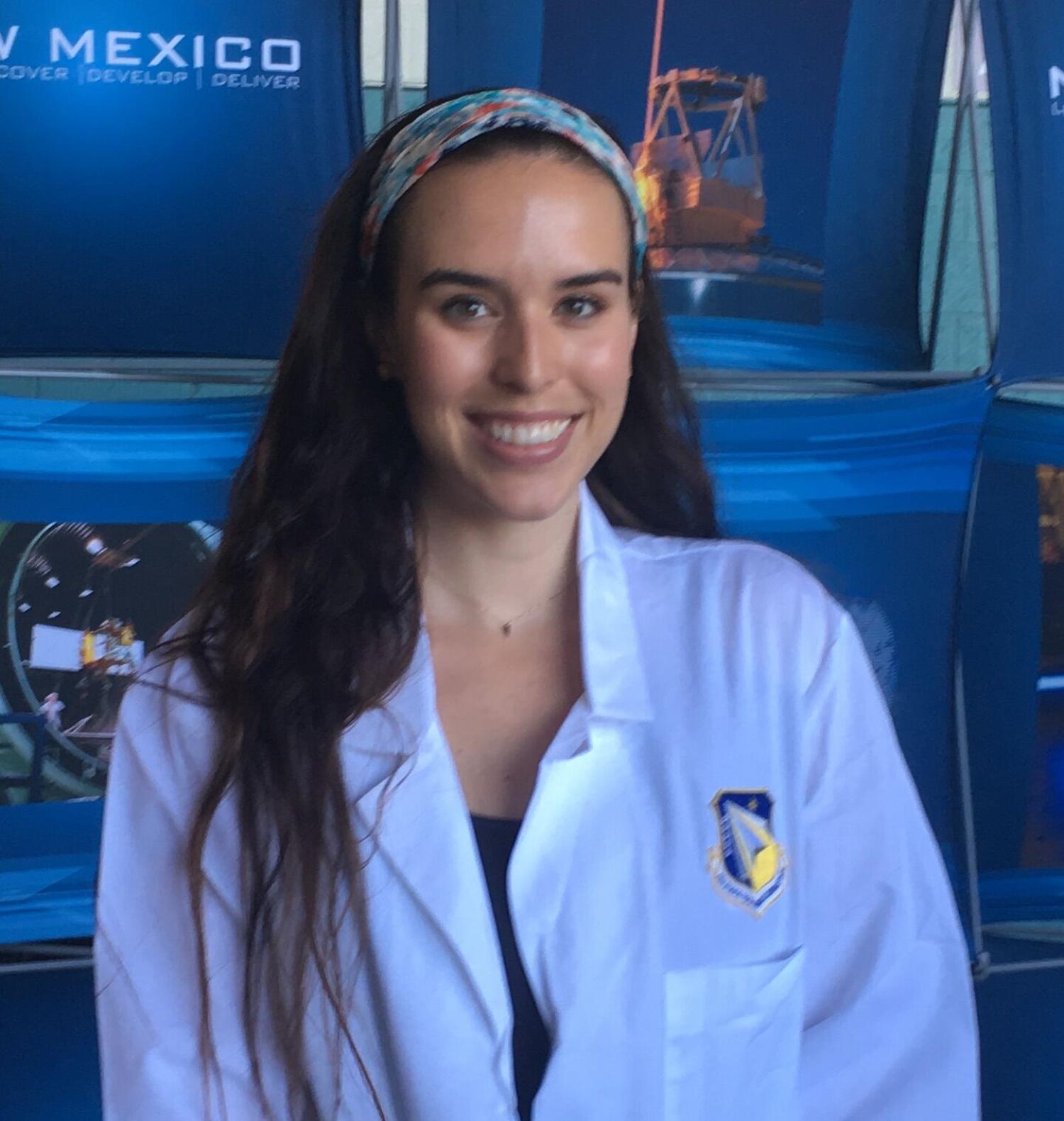Three Students Earn National Science Foundation Graduate Fellowships

Michael DeLuca
Institute for Modeling Plasma, Atmospheres, and Cosmic Dust (IMPACT) in the Laboratory for Atmospheric and Space Physics (LASP)
"I investigate cosmic dust and the instruments we use to study it. In my NSF application, I proposed to develop an instrument to study ice subject to dust impacts and laser ablation in the laboratory, to better understand icy moons in the Solar System."
Katherine Glasheen
Research & Engineering Center for Unmanned Vehicles (RECUV)
"The goal of my research is to expand the autonomous capabilities of small unmanned aircraft systems (sUAS) through the development of a network infrastructure. If airborne sUAS can take advantage of off-board resources for computation, updated weather and traffic information, and data storage, a network architecture will advance scientific research and expand planetary exploration capabilities."
Shaylah Mutschler
Colorado Center for Astrodynamics Research (CCAR)
"My research aims to harness the orbital debris population to sense the space environment. Using a multi-target filter to analyze operational measurements of debris objects, I will focus on the estimation of atmospheric drag as a means to reveal the spatial and temporal distribution of neutral and charged particles in the near Earth environment."
From rebuilding disaster-stricken communities to studying the effect of climate change on human migration patterns, 27 University of Colorado Boulder graduate students, including three from aerospace engineering sciences, will have an opportunity to expand their research efforts in the coming years after winning a prestigious 2017 National Science Foundation (NSF) Graduate Research Fellowship.
The awards, recognize outstanding graduate students from across the country in science, technology, engineering and mathematics (STEM) fields.
The aerospace winners are Michael DeLuca, Katherine Glasheen, and Shaylah Mutschler. (Read more about their work in the sidebar.)
This year, NSF received over 13,000 applications and made 2,000 award offers to students nationwide.
The 2017 CU Boulder winners represent a wide range of scientific disciplines from across campus, including astronomy, engineering, physics, evolutionary biology, mathematics, sociology and more.
Each recipient will receive a $34,000 annual stipend for the next three years as well as professional development opportunities.
In addition to the 27 fellowship award winners, another 26 CU Boulder students earned Honorable Mention recognition.
The College of Engineering and Applied Science saw a 50 percent increase in the number of NSF graduate fellowships this year, with awards across the full breadth of the college.
“The number and diversity of NSF fellowships awarded to our graduate students show that the depth and breadth of our college’s fundamental research continues to expand,” said Bobby Braun, dean of the College of Engineering and Applied Science. “I know that their groundbreaking research efforts will help build a better society and improve people’s lives.”

